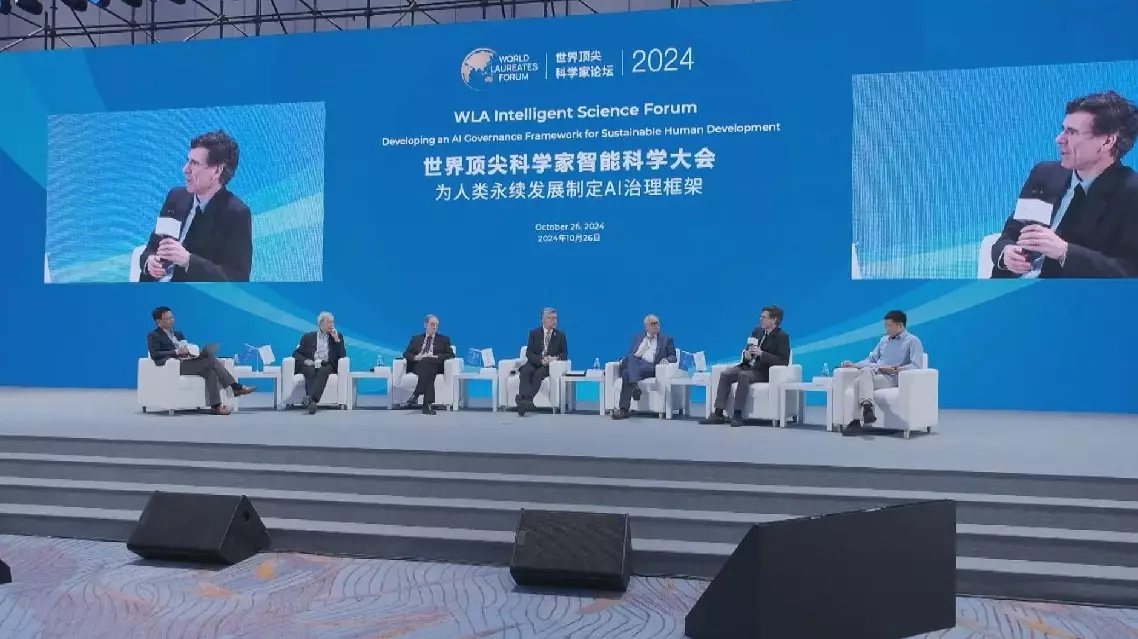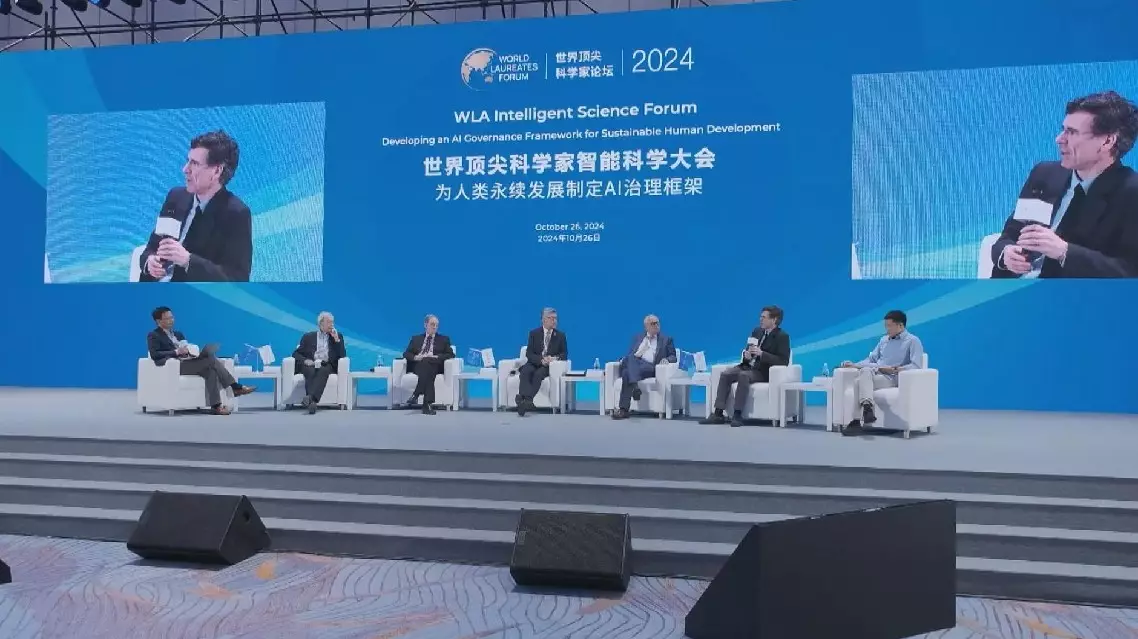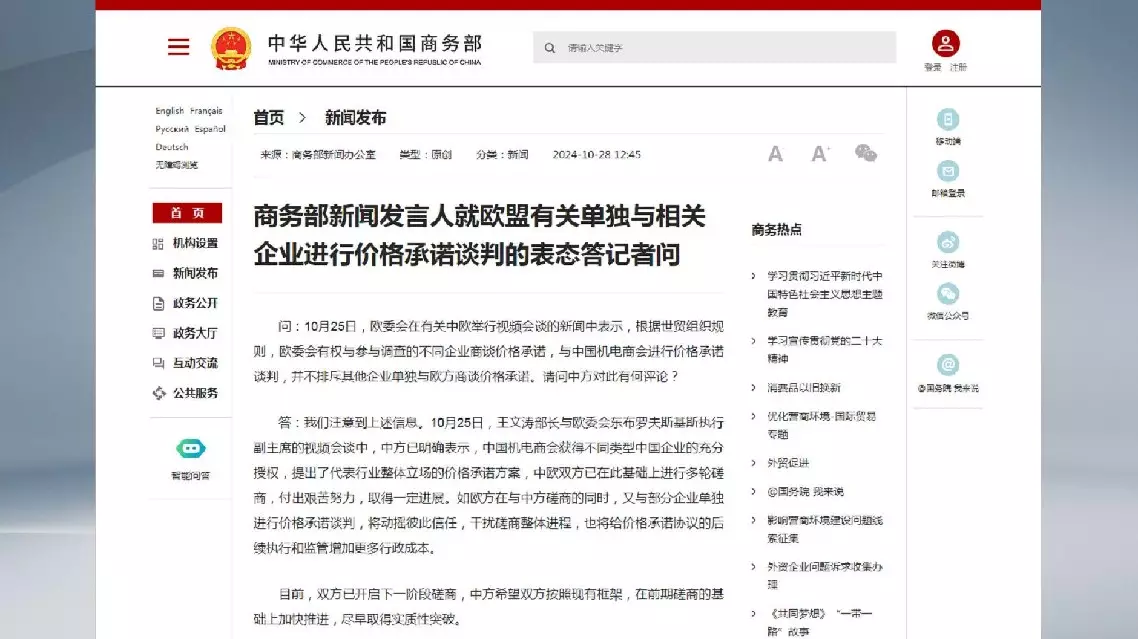As artificial intelligence (AI) becomes increasingly prevalent, experts and academics in the field are calling for a focus not only on exploring its potential for industrial modernization and improving daily lives, but also on an in-depth examination of the ethical challenges and regulatory requirements it raises.
The call to action was made at the recently concluded World Laureates Association (WLA) Forum 2024, held at the permanent forum site in the Lin-gang Special Zone in Shanghai, from Friday to Sunday.
Gong Ke, executive director of the China New Generation Institute of Artificial Intelligence Development Strategy, said AI has certain values when it works, highlighting the urgent need to forge global consensus in such a context. worsening geopolitical conflicts.
“AI inherently carries its own values when it generates content. Two years ago, UNESCO presented its first-ever document on the ethics of AI, the Recommendation on the Ethics of Intelligence artificial, which laid the foundations of governance This document defined four fundamental principles of values, from which 10 ethical principles emerged. In the face of serious geopolitical conflicts, how to form a global consensus during different forums such as those held. in Shanghai, Britain and South Korea poses a significant challenge,” he said.
The guidelines presented by UNESCO, cited by Gong, are applicable to all 194 UNESCO member states.
Given the rapid development and integration of AI into society, it is imperative to establish a unified global regulatory mechanism that transcends national, racial and cultural divisions, the scientists said.
Such a framework will not only guide the ethical development of AI but also mitigate its potential threats, thereby ensuring that AI contributes to society.
“What I’ve said repeatedly is that if we want AI to be used for good, we need to stop using it in weapon systems. And now it’s going to be used in weapons systems So we need to find a way to cooperate more,” said 2015 Turing Prize winner Martin Edward Hellman.
This year’s forum, titled “Scientific Excellence”, brought together nearly 300 participants, including 11 Nobel Prize winners, more than 50 renowned scientists from nearly 20 countries and regions, and around 100 promising young scientists.
The forum included more than 10 thematic conferences and off-site exchanges, welcoming government officials, university representatives and members of research institutions, innovative companies and venture capital firms.
This year’s forum inaugurated the Physical Sciences Conference, complementing the existing Intelligence Sciences Conference and Life Sciences Conference as the three main conferences of the forum.
AI experts call for global consensus on ethics and regulation at WLA Forum
AI experts call for global consensus on ethics and regulation at WLA Forum
Mutual trust between the European Union and China will be undermined if the European side conducts separate negotiations on price commitments with certain Chinese companies while engaging in general negotiations with China regarding electric vehicles (EVs). ), a spokesperson for the Chinese Ministry of Commerce said on Monday. The EU’s insistence on separate negotiations with relevant Chinese companies will also disrupt the overall negotiation process and increase administrative costs related to monitoring the implementation and supervision of price commitment agreements, a declared the spokesperson.
Chinese Commerce Minister Wang Wentao and European Commission Executive Vice President and Trade Commissioner Valdis Dombrovskis held a series of discussions via video link on Friday.
The European Commission said in its press release that negotiations between the EU and the Chinese Chamber of Commerce for the Import and Export of Machinery and Electronic Products (CCCME) do not exclude discussions with automobile exporters individual Chinese.
China made it clear during the negotiations that the CCCME had been fully authorized by different types of Chinese companies to propose a price commitment plan that represents the industry’s overall position, the spokesperson said.
On this basis, China and the EU have conducted several rounds of consultations, with great efforts and some progress made, the spokesperson said.
With the next phase of negotiations already underway, China hopes that the two sides will build on previous consultations and accelerate the negotiation process, so as to achieve substantive progress as soon as possible, the spokesperson added.
The European Commission, the executive body of the 27-member EU, is set to impose countervailing duties of up to 35.3 percent on electric vehicles imported from China, on top of existing customs duties of 10 percent. cent on imported cars, following a qualified majority vote in October. 4.
Separate negotiations on electric vehicle prices between EU and Chinese companies will damage mutual trust, official says





